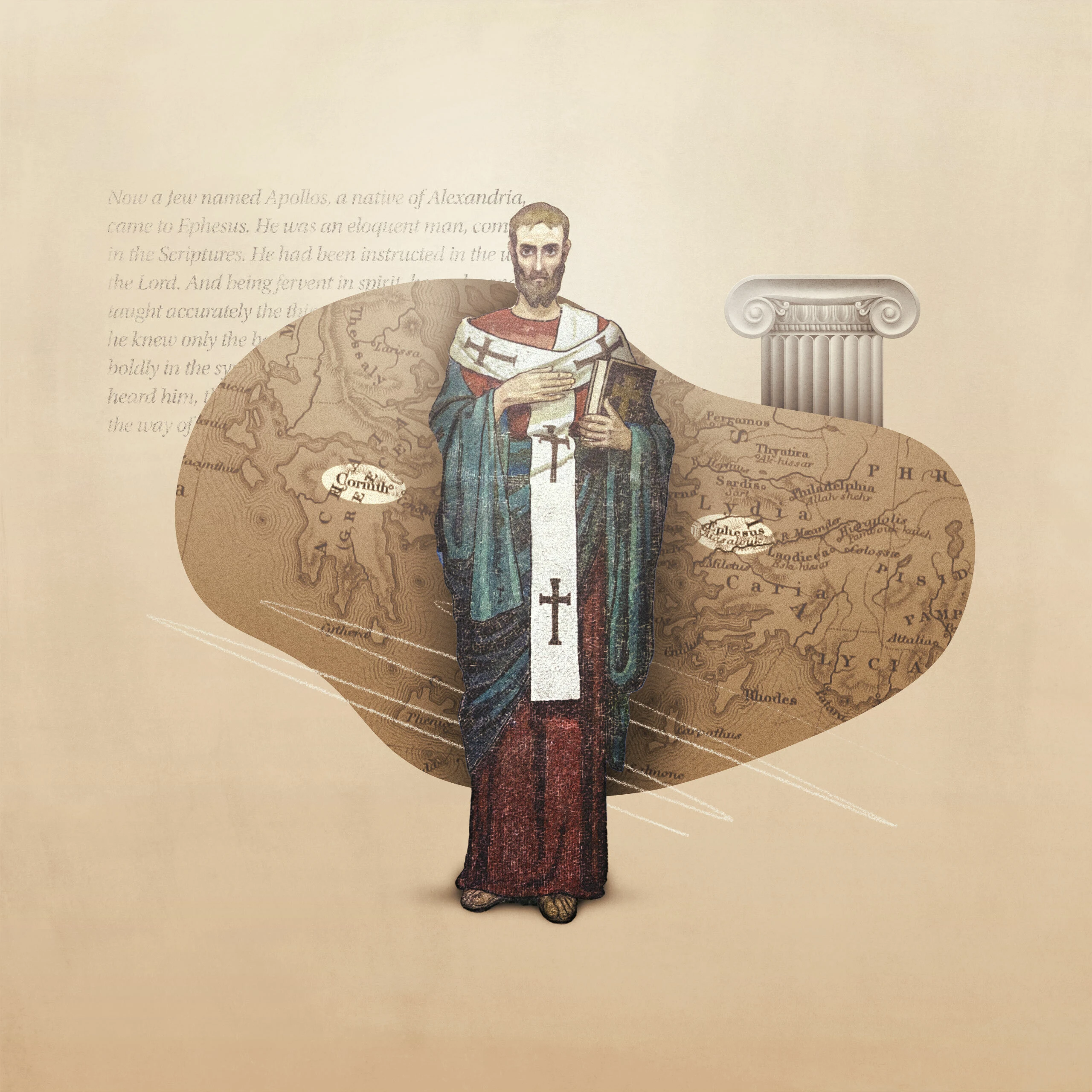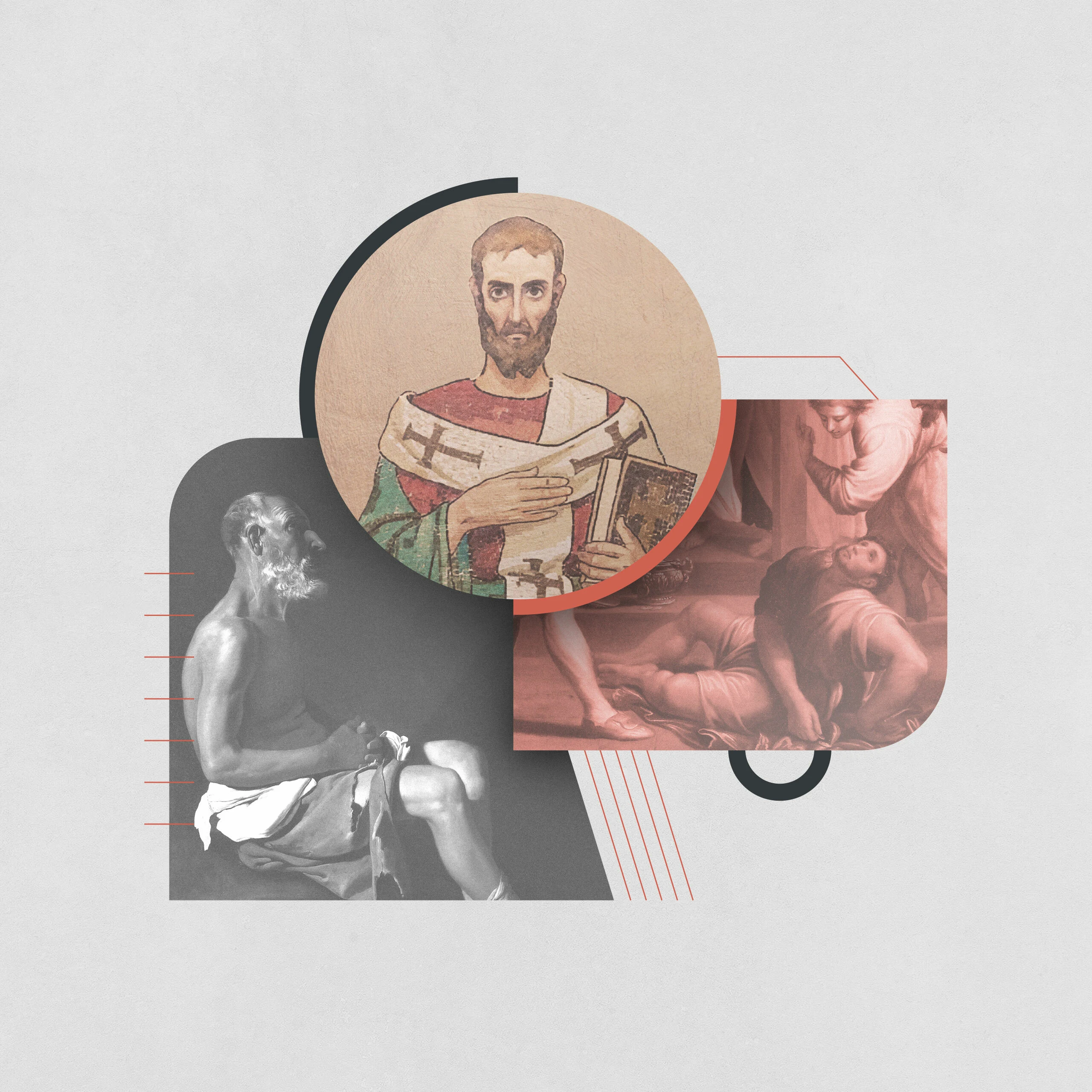Who Was Apollos?

Who was Apollos? What we know about Apollos is mostly found within the book of Acts and a few of Paul’s letters. While admittedly not as prominent as Apostles such as Paul, Peter, and John, Apollos played a significant role in the development of the early church. This is especially the case with the churches at Corinth and Ephesus.
Apollos was a Jew originally from the city of Alexandria in Egypt, which had developed a large Jewish community over the preceding centuries. It was also regarded across the ancient world as a center of Hellenistic culture and learning, as embodied in its great library that had been built in the third century BC during the reign of Ptolemy II (282–246 BC). Apollos is described in Acts 18:24 as “an eloquent man, competent in the Scriptures,” traits that were likely forged during his upbringing in a place that was a cultural intersection of both Judaism and Hellenism.
When Apollos first appears in the New Testament (Acts 18:24–28), he arrives in Ephesus around AD 53–54. Ephesus was a significant city in Roman Asia Minor, boasting a sizable population, vibrant economy, and the great Temple of Artemis. It was also home to a substantial Jewish community that had established a synagogue. It was there that Apollos was found teaching accurately and boldly about Jesus. Yet, his knowledge of the Christian message was limited. At that time, he only knew of John’s baptism, which was one of repentance and anticipation of the coming restoration of God’s people. It did not involve any explicit connection with the death, burial, and resurrection of Christ or the coming of the Holy Spirit.
Priscilla and Aquila, a Jewish wife and husband who became a Christian missionary team in close association with Paul, encountered Apollos teaching in Ephesus around AD 54 and perceived the incomplete nature of his teaching. They decided to come alongside Apollos privately and help him understand “the way of God more accurately.” After some time, likely around AD 54–55, Apollos traveled to Achaia, which is part of modern-day Greece. The Ephesian church encouraged him in his work and asked those in Achaia to welcome him. Apollos’ ensuing ministry in Achaia was considerably effective in refuting unbelieving Jews in public by demonstrating from Scripture that Jesus was the Messiah.
Apollos played a significant role in the development of the early church.
Apollos became a significant figure in the church at Corinth during his ministry in Achaia, so much so that when significant divisions broke out in the Corinthian church around AD 55–56, a group started to identify themselves specifically with Apollos against other groups advocating for either Peter, Paul, or even (supposedly) Christ (1 Cor. 1:12; 3:4). This was most likely the result of two factors. First, Apollos’ rhetorical skills due to his education in Alexandria made him an impressive speaker for most who heard him. Second, Corinth was a major city in Greece filled with people who were keen to demonstrate their personal, cultural, and economic upward movement or status by supporting the most impressive philosopher or speaker.
Paul’s letters to the Corinthian church address these divisions, emphasizing that both he and Apollos are merely servants and coworkers in a common cause (1 Cor. 3:5–9). Paul’s language about Apollos is entirely positive and complementary, giving no indication of any real division or animosity. In fact, Paul mentions in 1 Corinthians 16:12 that he urged Apollos to return to Corinth to visit. Apollos was unwilling at the time, but he did intend to come when he had the chance.
The last thing one can say with certainty about Apollos is that he continued to be active later in Paul’s ministry circle (AD 57–62), supporting churches in the Pauline circuit. When Paul wrote to Titus in Crete, he asked him to help Apollos and Zenas the lawyer on their way (Titus 3:13). It is after this point where certainty ends and speculative tradition begins.
Origen (c. AD 185–c. 253) and Martin Luther (AD 1483–1546) are known for suggesting that Apollos may have been the author of the Epistle to the Hebrews, but to date there has never been any conclusive evidence to support such a claim. Clement of Alexandria (c. AD 150–215) suggested that Apollos may have been influenced by Philo of Alexandria (c. BC 20–c. AD 50), who was a Jewish philosopher who sought to present Judaism positively to the wider Hellenistic world through an interpretation of the Jewish Scriptures in the idiom of Platonism and Stoicism. Yet, the suggestion was speculative, and no substantive evidence for this has ever been demonstrated.


